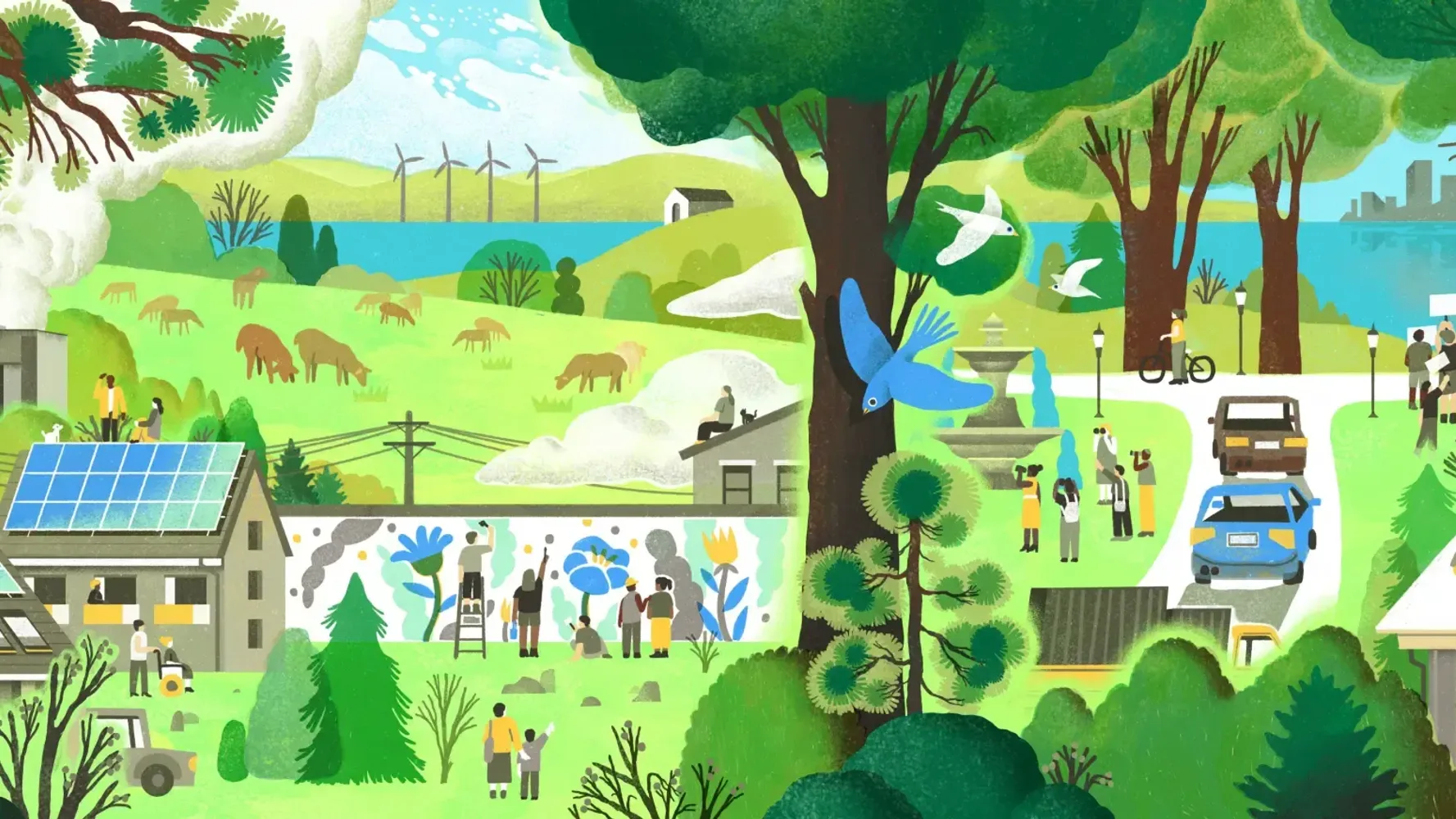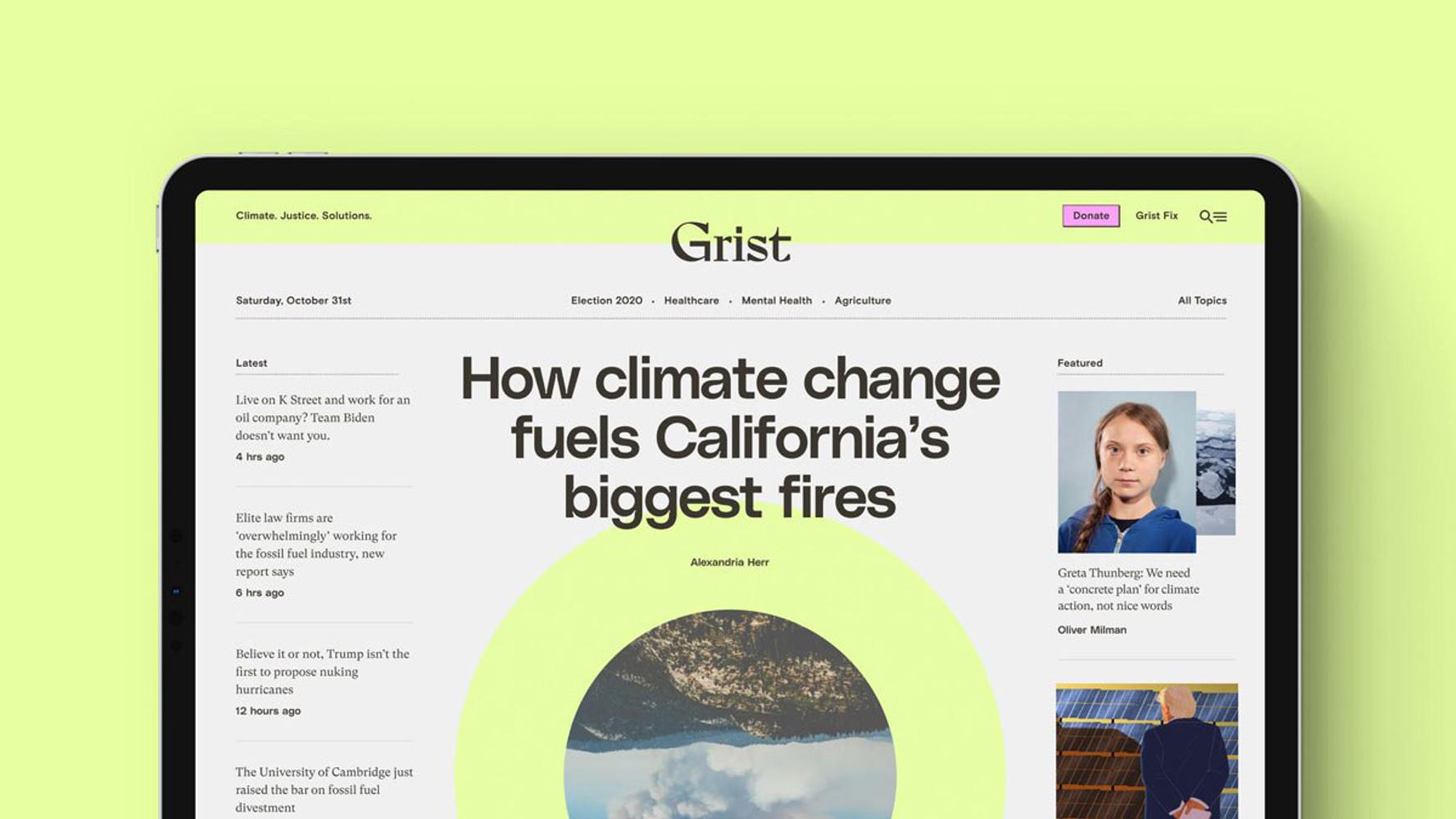We partner with a lot of young companies that are working to combat climate change. They’ve developed technologies like clean limitless energy and carbon-negative molecules, and their reporting is designed to inspire action. Our job is to tell their stories with clarity, accuracy, and heart, in a way that makes an impact on the right audience, whether investor, reader, or talent.
Upstatement was born in newsrooms, and we bring journalistic values to the table for every project. For the climate space in particular, we have a real responsibility as storytellers to be as honest and transparent as possible. But through our work with climate start-ups and other clients who are tackling complex problems, we’ve found that that responsibility doesn’t conflict with our goals around brand-building. In fact, authenticity and emotional intelligence in brand storytelling results in unique, strong brands and transformative outcomes.
A conversation, not a declaration
One of the key changes the climate news platform Grist made during their redesign was to the brand voice. Over the years, their headlines had become overly casual, flip, and unfocused. Together, we established a new approach, one that conveyed respect for the audience and the seriousness of the topic. The tone no longer positioned Grist as an all-knowing, snarky entity, but as an approachable partner seeking to empower its readers with facts.
Any advice or action items should take a non-confrontational tone: sharing, not preaching. Influencers or editors should show, not tell, by taking action themselves and telling the audience how that feels. People are more likely to modify their behavior if the work feels collaborative; handing down orders or aggressive persuasion isn’t effective.

Be solution-oriented
Grist didn’t swing all the way to the doomsday side of the spectrum. Information about the problem of climate change is everywhere, and while Grist covered that aspect of climate news, what truly engaged and energized people were potential solutions. Grist aimed to serve facts with a side of optimism and action.
Companies in the climate tech space exist because they’ve identified a tool to combat climate change. Talk about that. Promote the solution; we know the stakes already. What are the unique insights that only your brand could come up with?

Be honest
This is the most important one. Greenwashing happens, sometimes accidentally. Branding, by design, seeks to emphasize certain aspects of a company, and despite good intentions, the process can easily result in exaggerated or obscured facts about a brand’s real environmental impact.
Audiences are capable of handling nuance and gray areas, as long as you’re direct. Invite your audience along as you make progress toward adopting more sustainable behaviors. You don’t have to start with perfection. Seeing the process can inspire others and make it seem attainable to anyone; plus, a journey is a built-in narrative to help draw people in. Stories stick more than details of technical processes. But stories have to be honest too. Tap into genuine emotion and involve real people if possible.
Understand deeply, communicate simply
Clarity is critical for both honesty and crafting a powerful brand message. Translating deep scientific concepts to the average civilian requires streamlining and simplifying, but the end result shouldn’t feel dumbed down.
Solugen creates molecules in a clean, carbon-negative process, unlike the traditional chemical industry, a group responsible for 30 percent of the world’s greenhouse gasses. It’s not a simple process, and it’s not the easiest story to share. But subtle tweaks and a sensitivity to the audience’s preconceived ideas can go a long way in helping people connect the dots. Solugen’s original marketing materials included a lot of language around “chemicals.” We evolved that into a tagline: The chemistry of everyday life. Changing “chemicals” to “chemistry” was a tiny adjustment, but it provided immediate, significant context to the company’s process. They aren’t dealing in dirty chemicals; they’re harnessing the power of chemistry for the common good. That gives the audience an entrypoint to go deeper.

Why? Be specific
Another way to connect is to cut through the technical noise and focus on the why. But mission statements that are too vague (“We’re saving the planet”) are boring at best and misleading at worst. We collaborated with Solugen to articulate their process in a simple (but not simplistic!), compelling narrative that clarified the company’s true mission: to make life safer and more sustainable for future generations, using carbon-negative chemistry to improve products we all use in our daily routines. The specificity is what makes this statement work, rather than being too bland or grandiose.
Relating your product to specific local areas is another way to get real and be engaging. How exactly will you help someone in your community versus someone across the world?
Be hopeful
We’ve all gone through periods of climate grief, and environmental problems are impacting people like never before. But climate tech companies exist because they have hope; they’re actively working toward a very attainable better future. So don’t be afraid of tapping into that energy and broadcasting some joy. It’s exciting that there are new climate solutions hitting the market every day, and celebrating that can be a form of resistance: a fun attitude invites others in and helps build a movement.
Plus, brand-wise, it’s still a pretty unique approach in the climate space. Earth Alliance provides a huge amount of useful takeaways and hard facts, but they’re all presented with a sense of humor through Nuggets that are fun little worlds of their own, ranging from beautiful to weird.
Every day, we’re inspired by our partners who are trying to make the world a better place, whether that’s through carbon reduction, gun control laws, or a free press. It’s not always the case that a brand’s goals align so neatly with the greater good, which is why it’s rewarding to work with companies like these. But that’s also why it’s crucial that their stories are told accurately and effectively.
If you need some more inspiration, a few of our current favorite climate brand references are Patagonia, Neoplants, Carbon Crusher, NotCo, Commonwealth Fusion Systems, and Twelve Carbon. 🌍







